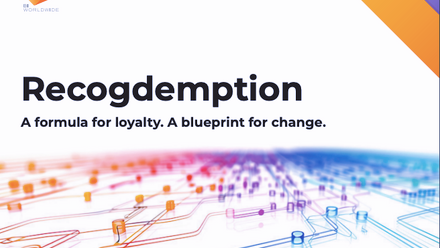REBA’s Inside Track: why data analysis skills are crucial to the future of reward and benefits

In the context of reward and employee benefits, these well-worn sayings can relate to only one thing – data. There is certainly no lack of data in the reward and employee benefits space, from suppliers, payroll or HR systems, data from staff engagement surveys or simply from a modest suggestion box. Getting data is not necessarily an issue.
We’ve heard from REBA members that a major challenge is being able to interpret data from an array of sources in a way that is meaningful and actionable. And this is where the need for data analysis skills comes to the fore.
Aon’s UK Benefits & Trends Survey 2021 found: “That only 9% of employers actively measure return on investment from their wellbeing programmes, and that a similarly low percentage use data to guide their strategy remains a real area of concern.”
The report survey goes on to note that by not embracing data, employers will find it “harder to justify investment, ensure maximum value through targeted activity, struggle to effectively engage employees and have no means to validate decisions and measure progress”.
The CIPD’s recent Reward Management Survey, also alludes to the need to explore different reward choices and the potential implications of those decisions for the organisation and its stakeholders. “This will require analytical skills – such as scenario planning and analytical technology – to capture and present the people and financial data in the right way, at the right time.”
The need for analytical skills is perhaps nothing new. However, the importance of that need, the complexity of the data sources involved, and the level of skill required is intensifying.
With the majority of benefits now delivered digitally and operating from online platforms, and as pressure to report on a broader range of reward data such as gender and ethnicity pay gaps increases, so does the need to meaningfully interpret the available data. As Aon’s research suggests, without detailed data analysis it is difficult to make sound strategic decisions.
As part of REBA’s On Demand Innovation Series, Melissa Lever, head of reward and HR systems at Linklaters, spoke to us about the value of having data analytic skills within the reward team, rather than outsourcing the task.
“If you outsource this you’ll get a range of outcomes come back to you, but you won’t necessarily know what’s driven those outcomes and what interventions will actually do anything to change what you do in the future,” she says.
She goes on to give the example of gender pay data, where there are many different variables that feed into the single gender pay gap figure. If you don’t know what has been inputted, and what has caused the top-line number to change, then you won’t know what you could or should do about it.
“To be able to tell a narrative and translate that number [gender pay gap figure] into a conversation with your business, you need to be able to understand that number,” says Lever.
The need to improve data analytic capabilities is not lost on employers. Mercer’s 2020/2021 UK Talent Trends Study revealed that more than half of HR leaders intend to focus on improving their analytics capabilities to support strategic workforce planning this year. While in just four years, the number of organisations using predictive analytics and/or making predictive analytics available in real-time to managers, has jumped from just 9% in 2016 to 47% in 2020.
The appetite for in-depth data analysis that can drive strategic decision making is here to stay. Reward professionals need to make sure future talent planning within their own teams includes the skills to manage these increasing demands.






